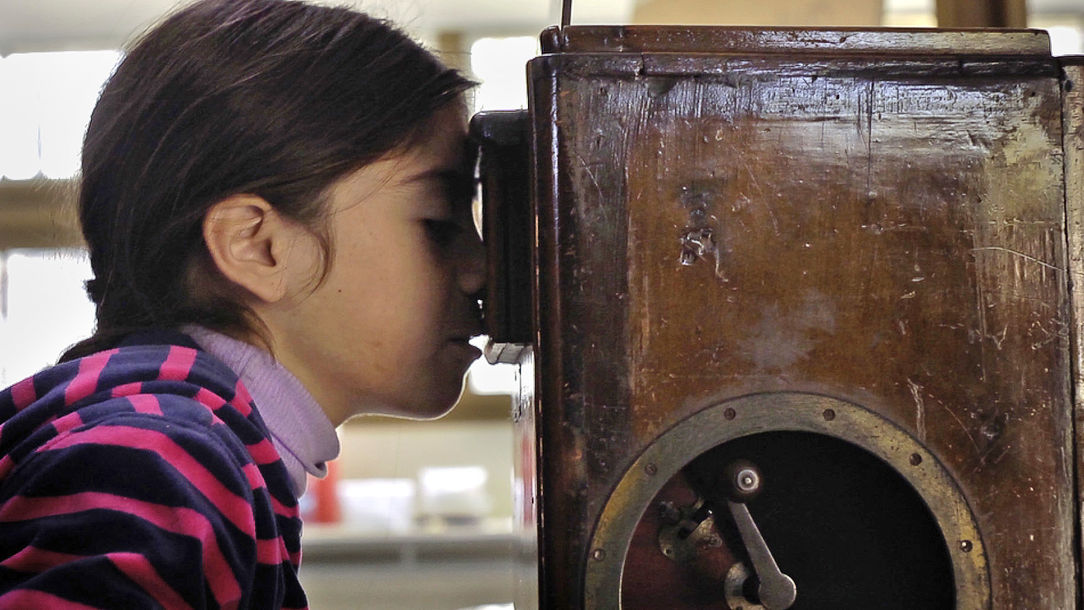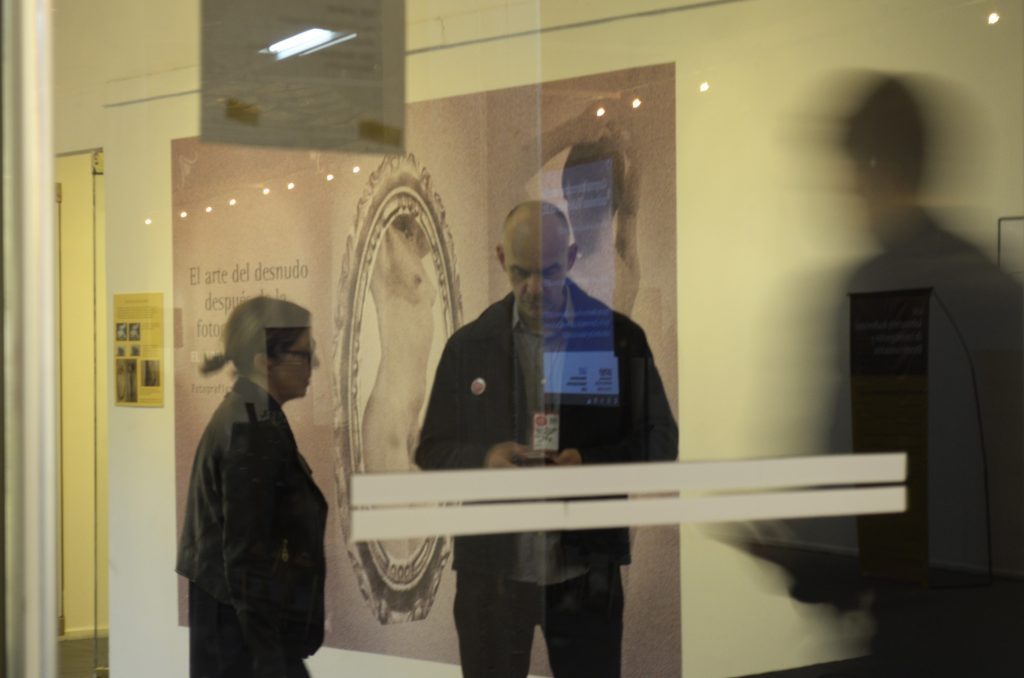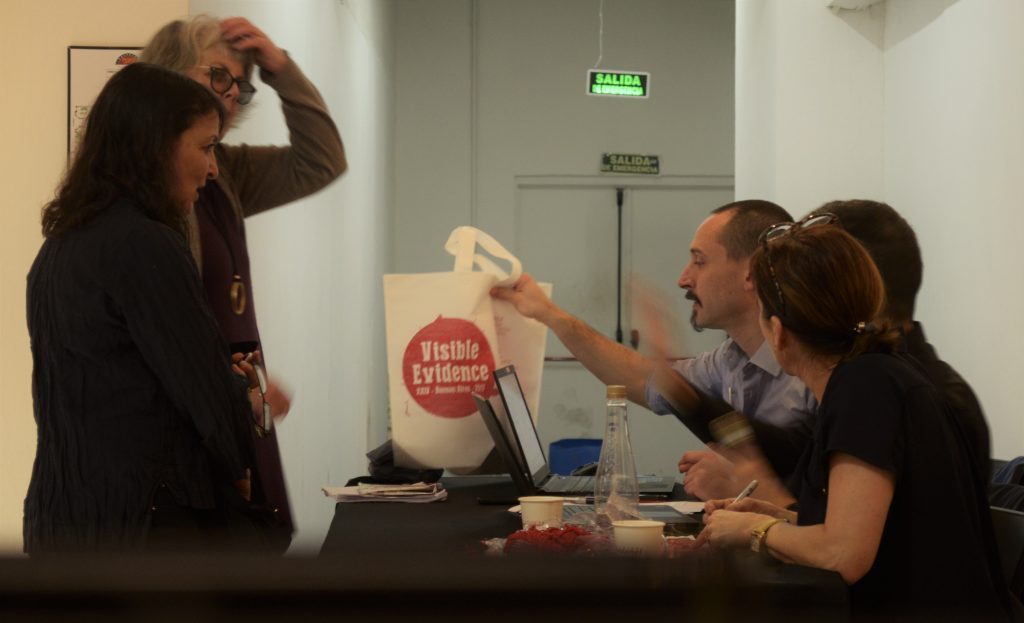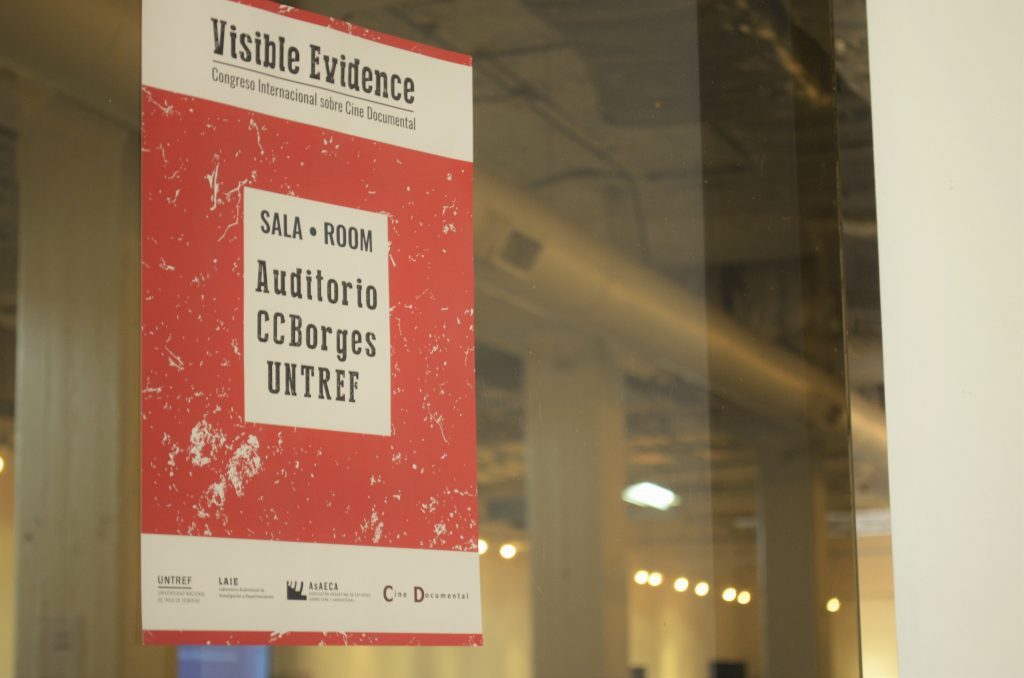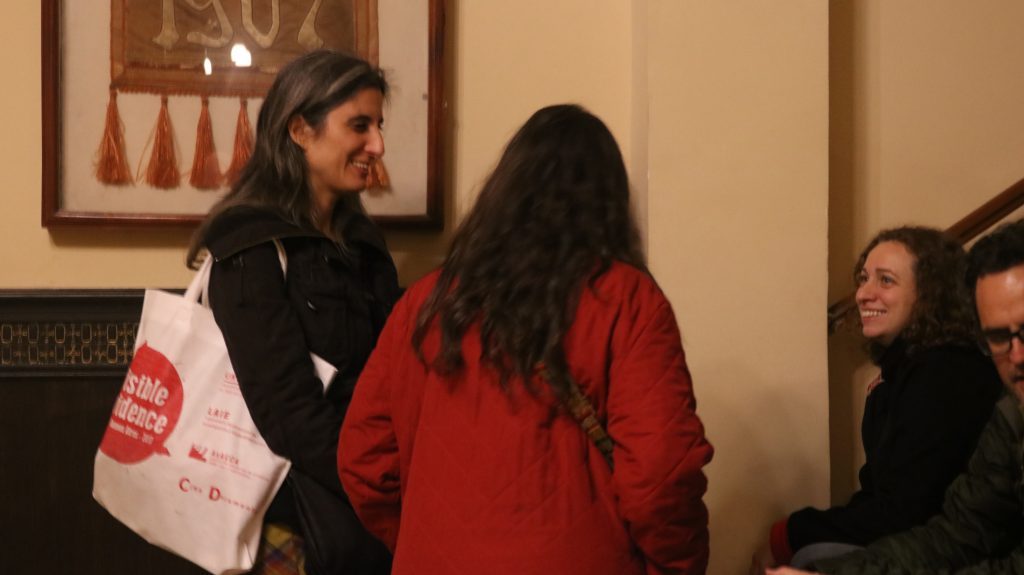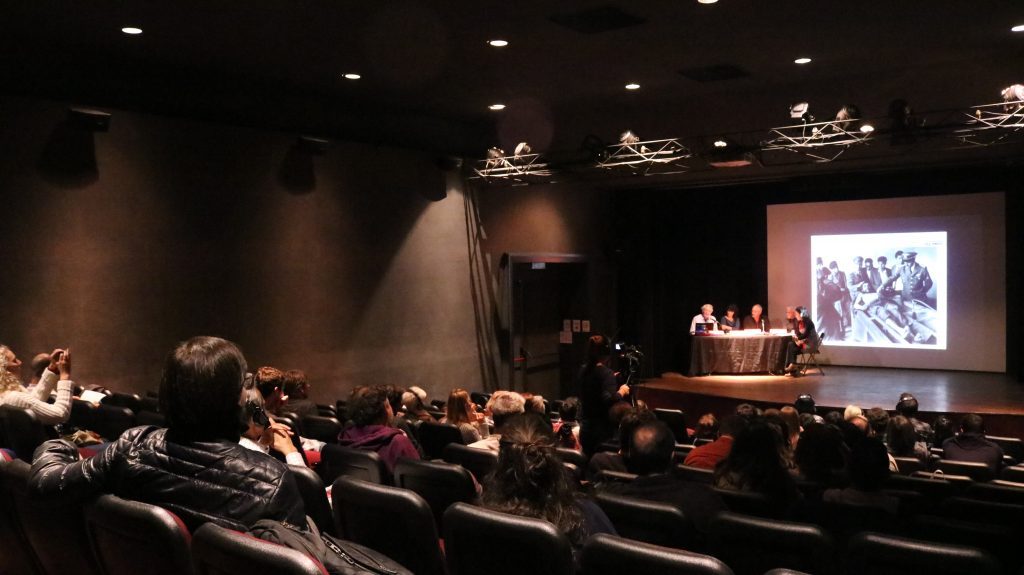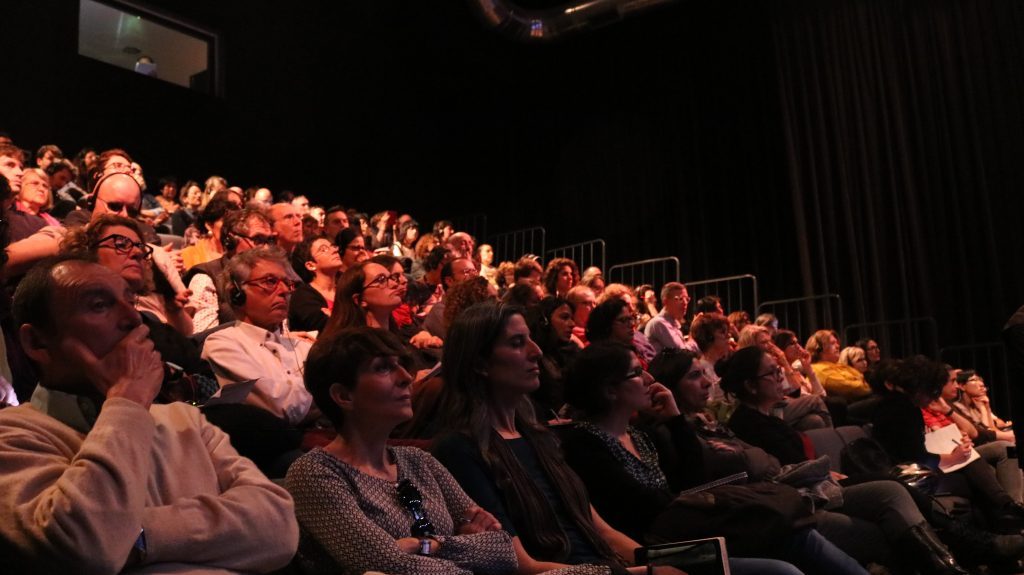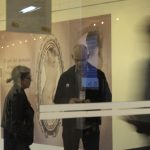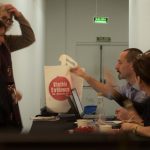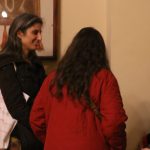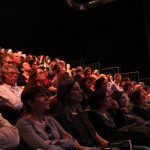Susana Barriga
Susana Barriga is a filmmaker and theorist interested in film essays rooted in reality. After obtaining a Bachelor’s Degree in Social Communication from the University of Havana, she studied documentary filmmaking at the International School of Film and Television in San Antonio de los Baños (EICTV) in Cuba. She holds a Master’s Degree in Psychoanalysis and Cultural Theory from the Complutense University of Madrid as well as a Master’s Degree in Contemporary Art History and Visual Culture with honours from the Autonomous University of Madrid and the Museo Nacional de Arte Reina Sofia. Currently she is a PhD candidate in Philosophy at the Complutense University of Madrid.
Her films have screened at over fifty international film festivals and showcases as well as academic institutions such as Princeton University, receiving awards at Berlinale, the Chicago International Film Festival, San Sebastian Film Festival and the Festival of New Latin American Cinema in Havana, among others. She was a recipient of the DAAD Artist Residency Fellowship awarded at Berlinale in 2009 for her film THE ILLUSION. She has taught at the EICTV as well as various other film schools and institutions in Spain, Portugal and Latin America. She was responsible for the development of the academic structure and theoretical foundations of the Master’s Program in Essay Filmmaking at the EICTV, whose first edition she co-directed and coordinated in 2016.
Andrés Di Tella
Andrés Di Tella is a filmmaker based in Buenos Aires, Argentina. He has directed eleven feature-length films: Montoneros, una historia (1995), Macedonio Fernández (1995), Prohibido (1997), La televisión y yo (2002), Fotografías (2007), El país del Diablo (2008) Hachazos (2011), ¡Volveremos a las montañas! (2012), Máquina de sueños (2013), El ojo en el cielo (2013) and 327 cuadernos (2015). His work spans video art, installations and performance pieces, as well as TV documentaries. He has written a non-fiction book, Hachazos (Caja Negra, Buenos Aires, 2011) and many essays and book chapters.
Retrospectives of his work have been held at the Centro Cultural Rojas of the University of Buenos Aires (2007); Filmoteca de Catalunya of Barcelona (2008); Filmoteca Española of Madrid (2009); Festival de Lima (2009); Cines del Sur, Granada (2011); Museo Nacional de Artes Visuales, Montevideo (2011); E Tudo Verdade at Sao Paulo, Rio de Janeiro and Brasilia (2012); Festival dei Popoli, Florence (2012), Universidad Católica, Santiago de Chile (2013), Tabakalera Centro de Arte Contemporáneo, San Sebastián (2015), Filmoteca de Galicia, A Coruña (2015), Casa de América, Madrid (2016).
Cine Documental en América Latina (Cátedra, Madrid 2003), a reference book edited by Paulo Antonio Paranaguá, devotes a chapter to his work, placing him among the most significant filmmakers in the history of documentary in Latin America. Two further books have been published on his films, Andrés Di Tella: cine documental y archivo personal, edited by Paul Firbas and Pedro Meira Monteiro (Siglo XXI, Buenos Aires, 2006) and Inventario de regresos: el cine documental de Andrés Di Tella, edited by Casimiro Torreiro (Cines del Sur, Granada, 2011). El documental y yo: il cinema di Andrés Di Tella, an extended essay and dossier by Daniele Dottorini, was published as a catalogue for the Festival dei Popoli (Florenece, 2012). He has been a recipient of the Guggenheim Fellowship and the Premio Konex (Argentina) and has sat on panels for the Rockefeller Foundation (USA), Consejo Nacional de la Cultura y las Artes (Chile), Premio Nacional del Ministerio de Cultura (Colombia), Instituto de Cine Uruguayo, Instituto Nacional de Cine y Artes Audiovisuales (Argentina) and several film festival juries.
He is also a film teacher and curator. He was the founder of the Buenos Aires Festival Internacional de Cine Independiente (BAFICI), considered by many the principal film event in Latin America, which he directed in its first editions (1999 and 2000). From 2002 to 2011, he was the Artistic Director of the Princeton Documentary Festival, at Princeton University, where he has also been a visiting professor. He currently teaches film at the art department of the Universidad Torcuato Di Tella.
Thomas Elsaesser
He is Professor Emeritus at the Department of Media and Culture of the University of Amsterdam. From 2006 to 2012 he was Visiting Professor at Yale and since 2013 he is Visiting Professor at Columbia University. Author and editor of some twenty books, his work has been published in most European and several Asian languages. Among his recent books are German Cinema – Terror and Trauma: Cultural Memory Since 1945 (New York: Routledge, 2013), Film Theory – An Introduction through the Senses (with Malte Hagener, 2nd revised edition, New York: Routledge, 2015), Körper, Tod und Technik (with Michael Wedel, Paderborn: Konstanz University Press, 2016) and Film History as Media Archaeology (Amsterdam University Press, 2016). He is currently completing a book on Europe, Cinema and Continental Thought (London: Bloomsbury, 2017).
Jean-Paul Fargier
Jean-Paul Fargier was born in Aubenas (France 1944). He is a video artist, filmmaker, journalist, writer, and film and art critic. He is considered to be one of the pioneers of Video Art in France, and has been working from the beginning of the 1970s. After more than twenty years of an artistic career, Fargier has become an irrefutable reference within the videoart and televisual international movement, with more than 100 documentary films, video art pieces and video installations to his credit.
He is known for TV programs such as Play it again, Nam (1990), L’origine du monde (1996), Le dernier bal de la quatrième (2008), Bill Viola, expérience de l’Infini (2014). Moreover, he is known for his writings in La Tribune socialiste (1967-1970), Cinéthique (1968-1973), Les Cahiers du cinéma (1978-1989), Le Monde (1980-1982 et 1993-1996), Libération (1982-1983), Art Press and Turbulences Vidéo, among others.
Fargier has published several academic articles and book chapters and is the author of ean-Luc Godard (with Jean Collet, Seghers 1974), Atteinte à la fiction de l’État (Gallimard 1978), Les Bons à rien (Presses d’aujourd’hui 1980), Nam June Paik (Art Press 1989), TiVi ou TiVi pas? Si TiVi pas, tant pis! (Éditions Acharnistes 2009), Cine et TV vont en vidéo (Avis de tempête) (De l’Incidence 2010), Nam June Paik, pionnier absolu (forthcoming in June 2017 with De l’Incidence).
María Luisa Ortega Gálvez
Dr. Ortega Gálvez is an Associate Professor of Media Studies at the Universidad Autónoma de Madrid (Spain) and an Editorial Board Member of the Spanish film journal Secuencias. Revista de Historia del Cine (UAM-Maia ediciones).
Since 2004, Dr. Gálvez has taught in the Master’s Degree program in Theory and Practice of Creative Documentary Making at the Universidad Autónoma de Barcelona (Spain). She was the film programmer for Documenta Madrid (Madrid’s International Documentary Film Festival) and Cines del Sur (Granada’s International Film Festival). She acted as Jury Member for the BAFICI (Buenos Aires International Independent Film Festival) and for Las Palma’s International Film Festival – for which she has curated several screenings and retrospectives. Dr. Gálvez also worked as an evaluation committee member for the “work-in-progress short documentary” section of the Mixed Funds’ Cinematographic Promotion (Colombia).
Dr. Gálvez is the author of Espejos Rotos. Aproximaciones al documental norteamericano contemporáneo (2007), co-author of collective works such as The Cinema of Latin America (2003), Cine documental en América Latina (2003), Documental y vanguardia: lenguajes fronterizos (2005), Cineastas frente al espejo (2008), Piedra, papel, tijera: collage en el cine documental (2009), Doc. el documental en el siglo XXI (2010), The Grierson Effect: Tracing Documentary’s International Movement (2014), and Il cinema spagnolo attraverso i film(2014), as well as editor, among others, of the volumes Nada es lo que parece. Falsos documentales, hibridaciones y mestizajes del documental en España(2005), Mystère Marker. Pasajes en la obra de Chris Marker (2006), Cine directo. Reflexiones en torno a un concepto (2008) and Le Nouveau Du Cinéma Argentin (2015).
Luis Ospina
Ospina was born in Cali (Colombia 1949) and studied cinema at USC and UCLA. He was part of the famous ‘Cali Group’ together with Carlos Mayolo and Andrés Caicedo. He has directed two feature fiction films, Pura sangre (1982) and Soplo de vida (1999), and has made seven documentary features, as well as twenty short documentaries and fiction films, among them: Agarrando pueblo(1977) – co-directed with Carlos Mayolo – Andrés Caicedo: unos pocos buenos amigos (1986), La desazón suprema: retrato incesante de Fernando Vallejo (2003) and Un tigre de papel (2007).
Ospina is the author of the 2007 book Palabras al viento, Mis sobras completas. His work has received several awards, from the international festivals of Oberhausen, Biarritz, Habana, Sitges, Bilbao, Lille, Miami, Lima, Caracas and Toulouse. Retrospective screenings of his work were shown at Filmoteca de Cataluña, la Cineteca de México and la Cinemateca de Venezuela. Some of his works were exhibited at the Tate Gallery, the Museo Reina Sofía, the Georges Pompidou Centre, the Jeu de Paume, the San Francisco Museum of Modern Art and Dokumenta Kassel. Ospina’s most recent film is entitled Todo comenzó por el fin [It All Started at the End] (2015). He is currently the Artistic Director of the Cali International Film Festival – FICCALI.
Abridged filmography
1978 – Agarrando pueblo [Vampires of poverty] (short film co-directed with Carlos Mayolo)
1982 – Pura sangre (feature film)
1986 – Andrés Caicedo: unos pocos buenos amigos (documentary film)
1993 – Nuestra película (documentary film)
1999 – Soplo de vida (feature film)
2003 – La desazón suprema: retrato incesante de Fernando Vallejo (documentary film)
2007 – Un tigre de papel [A Paper Tiger] (documentary film)
2015 – Todo comenzó por el fin [It All Started at the End] (documentary film)
Iván Sanjinés
Social activist, producer and director Ivan Sanjinés has dedicated his life work to the development of indigenous and intercultural communication. He is the founding director of the Cinematography Education and Production Center/Centro de Formación y Realización Cinematográfica (CEFREC) in La Paz, Bolivia. CEFREC works with the Bolivian Indigenous Peoples Audiovisual Council/ Coordinadora Audiovisual Indígena Originaria de Bolivia (CAIB). Together the two organizations lead Bolivia’s National Indigenous Aboriginal and Campesino Intercultural Communication System, a non-profit nationwide training and production initiative launched in 1996. In 2010 the initiative founded an independent indigenous advocacy news agency, the Agencia Plurinacional de Comunicación (APC), and its multimedia website (www.apcbolivia.org).
Since 1983 Sanjinés has engaged in socially-conscious media production training in Bolivia. His work with migrant Aymara women living in El Alto, La Paz, led to the founding of CEFREC in 1989. His collaborative production approach has been instrumental in building partnerships and securing funding for diverse media projects. In 1998 and 1999 CEFREC worked with CAIB to produce the first documentaries and fictional works by indigenous filmmakers in Bolivia. In 2001 Sanjinés spearheaded the establishment of a regional community radio and television project, Norte La Paz, now Bolivia’s first indigenous television channel. The two organizations also produce Between Cultures/EntreCulturas, a weekly series broadcast on Bolivian national television, BoliviaTV, since 2002.
From 1996-2004 Sanjinés headed Latin American Coordination of Indigenous Peoples’ Film and Communication/Coordinadora Latinoamericana de Cine y Comunicación de Pueblos Indígenas (CLACPI), directing CLACPI’s tenth festival, held in Bolivia in 2008, and providing video workshops in indigenous communities in Bolivia, Paraguay, and northwest Argentina. CLACPI festival works are also screened annually in Spain through the film showcase El Universo Audiovisual de los Pueblos Indígenas. Sanjinés is also coordinator of the Anaconda Award (Premio Anaconda al Video Indígena Amazónico del Chaco y los Bosques Tropicales de América Latina y el Caribe), a bi-annual showcase touring indigenous communities in the tropical regions of South America, for which the community audiences vote to select the award winners.
Sanjinés has presided over the Platform for Communication Rights in the Information Society in Bolivia and participates in the Bolivian section of the World Association of Community Radio (AMARC). He studied documentary film and media in France, Bolivia, and Spain. In 1984 he was a founding member of the New Bolivian Film and Video Movement (Movimiento del Nuevo Cine y Video Boliviano) and its Executive Director in 1991. He currently serves on the boards of the Bolivian Cinema Foundation and Wapikoni Mobile (Canada). He has received numerous awards including an Ashoka Fellowship (1999), the Bicentennial Award of La Paz (2009) and a lifetime achievement award from the House of Representatives of the Chaco Province of Argentina, presented at the region’s 2010 Indigenous Film Festival. He lives and works in La Paz.
